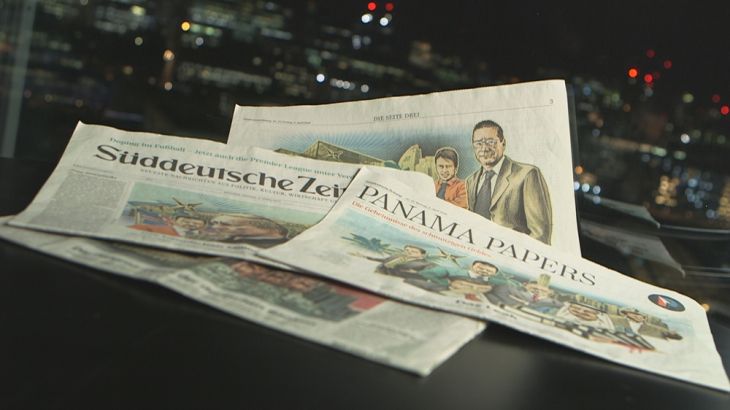
Panama Papers: Have the media censored the story?
Can the corporate-owned media really hold the corporate world to account? Plus, Julian Assange on the Panama Papers.
In this special edition of The Listening Post, we look at the Panama Papers, the world’s largest ever data leak that has been exposing how the rich and powerful use tax havens to hide their wealth.
The papers – 11.5 million documents in all – have revealed how Mossack Fonseca, a Panama-based law firm, allegedly helped current and former world leaders, as well as businessmen, criminals, celebrities and sports stars, evade or avoid tax via anonymously owned shell companies and offshore accounts.
Keep reading
list of 4 itemsGeorgia advances ‘foreign agents’ bill as 20,000 rally against it
NPR editor resigns after accusing US outlet of liberal bias
Lawmakers brawl as Georgian Parliament considers ‘foreign agent’ bill
In terms of the size of the leak and the scale of the journalistic collaboration, the story has garnered wall-to-wall coverage and dominated the front pages of newspapers across the world.
The International Consortium of Investigative Journalism, a non-profit group in the US, coordinated the reporting with 376 journalists from 109 news organisations and 76 countries poring over the files.
Such multi-newsroom collaborations are growing more common in an age of big data leaks, partly because newsrooms are shrinking while the influential players they are trying to hold accountable are growing in size, power and complexity.
But despite the success of the collaboration, the select group of media organisations that had access to the data have been criticised for how they tackled the story.
One of the main criticisms has been the way they went after wealthy business figures and some political leaders while largely shying away from the corporate side of the story that has enabled trillions of dollars, euros, pounds and rubles to be hidden offshore.
This has in turn raised a larger question: can the corporate-owned news media really be expected to hold the corporate world to account?
Talking us through the Panama Papers and how the story came together are: Gerard Ryle, director of the ICIJ; Wolfgang Krach, editor-in-chief at Suddeutsche Zeitung; Jacqueline Kubania, a reporter at the Daily Nation, Kenya; and investigative journalist Steven Topple.
Covering megaleaks: An exclusive interview with Julian Assange
One person who knows more than others about leaks, journalism and whistleblowing on a grand scale is WikiLeaks cofounder and editor-in-chief, Julian Assange.
In an exclusive interview, The Listening Post sat down with Assange to get his view on the Panama Papers, document leaks, multi-newsroom cooperation and the ethics of holding back information that could be in the public interest.